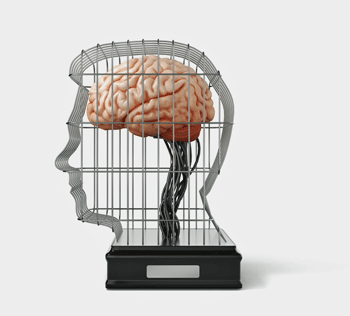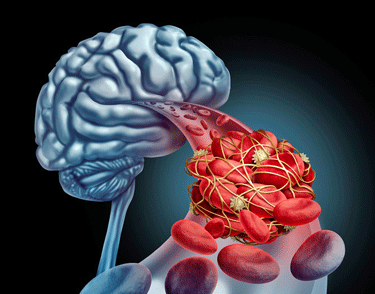

The GIST is towards the bottom of the post
Check out Geoff’s narration
The GIST
The Blog
Highlights from the ME/CFS Roadmap Presentation at the Spring NANDSC Meeting
VIcky Whittemore, Lucinda Bateman and Maureen Hanson presented recommendations produced by the Roadmap effort to the NINDS advisory committee called NANDSC. The Roadmap consisted of 8 day long webinars and culminated in a 148-page report that was delivered to the Council. Roadmaps are designed to produce strategic directions for the NIH and have resulted in increased funding in other diseases.
- Watch the videocast here – I believe the Roadmap presentation begins about an hour and a half in.
The NIH Wants Your Brain

The NIH is looking for ME/CFS and fibromyalgia brains to better understand these illnesses
The NIH wants your brain – it really does. (Not right now – later.) I don’t know when this happened but it’s happened. If you want science to make use of your brain to help understand what’s going on chronic fatigue syndrome (ME/CFS) or fibromyalgia after you’re gone there’s a way to do it.
This interesting possibility arose during the Q & A session after the ME/CFS Roadmap presentation. After a NANDSC member strongly asserted – citing the need to look for things like “transposable elements. endogenous retroviruses and epigenetics” and damage to the brain and spinal cord that autopsies would be very helpful, Vicky reported that it is possible to provide ME/CFS brains to the NIH Neurobank. (Who knew?)
Noting that suicide is an issue with ME/CFS Vicky alluded to the sensitive nature of donating one’s brain, but Lucinda Bateman popped saying she’d just had a conversation with an ME/CFS patient who simply wanted to help out the field if she could.
It turns out that it’s remarkably easy (if not a little weird) to start the process. Click here to learn about the Brain Donor Project and here to begin the pre-registration process. After that you’ll receive an email with an information packet where you can more fully flesh out the details: your age, sex, health details, etc. ME/CFS, fibromyalgia, Lyme Disease and migraine are included. Long COVID is not. You must be over 18 and a U.S. citizen to apply.
Update! – ME/CFS Mentioned in Brain Donor Project Newsletter
We made news! Check it out. (Thanks to GH for passing this along.)
Donated Brains Needed for Chronic Fatigue Syndrome Research
Brain donation was a big topic last month when the Advisory Council of the National Institute of Neurologic Disorder and Stroke (NINDS) received a long-awaited report on how to advance the science of Chronic Fatigue Syndrome (ME/CFS). The lack of treatment (or significant research) for this debilitating disorder has frustrated patients and advocates, and this “roadmap” report (at 2:22:00 in this videocast) lays out recommendations for how to change that. As you might imagine, brain donation is needed to find answers and when the advocacy group Health Rising publicized this need, and advised patients to contact The Brain Donor Project, they responded. Last week alone 42 people reporting a diagnosis of ME/CFS pre-registered to be brain donors when the time comes.
Update! Netherlands Brain Biobank Opens
As Konjin and Jay reported in the comments the Netherlands just a couple of days ago opened its first brain biobank for ME/CFS. Find out more about that here.
Check out a blog on what the limited but interesting brain and spinal autopsy results have shown so far in ME/CFS. Much more sophisticated analyses can be done now.
 A New Funding Opportunity for ME/CFS (!?)
A New Funding Opportunity for ME/CFS (!?)
Just a week or so after Vicky Whittemore cited the difficult funding environment that persists at the NIH in general and NINDS, in particular, she stated that a new funding opportunity was in the works. This could presumably mean anything from an unfunded program announcement PA) that details aspects of ME/CFS that the NIH is particularly interested in (most likely?) to a fully funded Request for Applications (RFA) (not likely?).
Time will tell. We should know more about this soon.
Trans-NIH Working Group
Now that the Roadmap has been accepted, the Trans-NIH Working Group is tasked with implementing its recommendations – not an easy task given the many, many recommendations (see below) and the many needs in this field. The WG can quickly do some things that don’t require money (or much money) but for those that do, my understanding is that the WG would need to make a request to NANDSC for the finding required to do that.
Some things that it appears will be done include:

A genetics consortium will be formed to take advantage of the burgeoning genetic information that is coming available.
A Genetics Consortium
Citing a great deal of unpublished data and the DecodeME work that is being done as well as long COVID data that has come available, Vicky said “geneticists are very anxious to come together” and move that forward. These consortiums typically bring researchers together to assess the genetics of a disease on a large scale.
A Clinical Trials Working Group
It also seems clear that a “clinical trials working group” will be formed. While it’s not clear what it would do it may do things like make treatment recommendations for clinical trials, recommend testing protocols, how patient selection is done (?). Anytime experts get together as a body to make recommendations it helps.
The GIST
- Roadmap Presentation – VIcky Whittemore, Lucinda Bateman and Maureen Hanson presented recommendations produced by the Roadmap groups to the NINDS advisory committee called NANDSC.
- The Roadmap consisted of 8 day long webinars and culminated in a 148-page report that was delivered to the Council. Roadmaps are designed to produce strategic directions for the NIH and have resulted in increased funding in other diseases.
- Donate Your Brain – During the Q & A session it became clear that if you live in the U.S. and are over 18 your can donate your brain (after you die, of course) to help researchers understand what has happened in ME/CFS. Click here to learn about the Brain Donor Project and here to begin the pre-registration process – which is remarkably brief (if you haven’t participated in a research trial). After that you’ll receive an email with an information packet where you can more fully flesh out your age, sex, health details, etc. ME/CFS, fibromyalgia, Lyme Disease and migraine are included. Long COVID is not.
- New Funding Opportunity for ME/CFS – Just a week or so after Vicky Whittemore cited the difficult funding environment that persists at the NIH and NINDS in particular she stated that a new funding opportunity for ME/CFS was in the works. What it is and whether it actually comes with funding is unclear. We should know soon.
- Implementing the Roadmap’s Recommendations – The Trans-NIH Working Group for ME/CFS tasked with implementing the report’s recommendations. Since the report provided many, many recommendations it will be able to implement only a few of them. Thus far it’s clear it will create a Genetics Consortium to bring all the genetic information in ME/CFS together and a Clinical Trials Working Group to prepare the way for clinical trials.
- Roadmap Recommendations – a long list of recommendations can be found in the last half of the blog.
Roadmap Recommendations
Mauren Hanson – who delivered the research highlights – first focused on three of the eight areas the webinars covered – pathogens, and the nervous and immune systems – because they were of most interest to this committee.

The role enteroviruses, Epstein-Barr virus and HERV’s may play was highlighted.
Pathogens
- Enteroviruses – A year or so ago Maureen Hanson produced a paper on enteroviruses and ME/CFS and she leaned heavily on them before the committee – stating “there’s good evidence for enterovirus as the pathogen and its possible that an enterovirus family member was the pathogen in all the mid-80’s outbreaks and like the ones in the earlier ones“.
- Epstein-Barr virus (EBV) – is chronic EBV reactivation maintaining the illness or is it simply a “susceptibility factor”; something that people with ME/CFS are susceptible to but which is not necessarily driving their illness.
- Endogenous Retroviruses (HERV’s) – these so-called “fossil viruses” that are embedded in our genome have not been studied much in ME/CFS but are actively being studied in other neurological illnesses.
Immune System
- Is ME/CFS an autoimmune disorder?
- Is an antigen (something foreign in the body such as a virus or a piece of a virus) driving parts of the immune system to exhaustion
- Which immune signaling pathways are disrupted?
- What role may little studied immune cells such as platelets be playing?
- Where is the inflammation seen in ME/CFS coming from?
- What role is the gut microbiome playing?
- Pet imaging for the wholebody immune responses should be done.
- What role is mast cell activation syndrome playing?

Understanding the cause of the reduced blood flows to the brain was a major topic.
Nervous System
- Neuroinflammation, reduced brain blood flows and small fiber neuropathy have been found
- With reduced cognition a major concern, circulatory dysfunction in the brain and cerebral spinal fluid be assessed more thoroughly. Likewise nitric oxide signaling and the Bh4 enzyme
- The cause of the orthostatic intolerance should be investigated more.
- With regard to unrefreshing sleep and sleep phase reversals investigators should attempt to find biomarkers for these conditions and assess cerebral spinal fluid/glymphatic flows during sleep
Circulation
- Little is known about the extent and effects of endotheliitis, increased vasoconstriction, platelet activation and microclots and low blood volume.
- Reduced cerebral blood flows, impaired oxygen sensitivity of the red blood cells and neurovascular dysregulation (not getting blood to the right places in the brain and elsewhere) have all been found.
Metabolism and Energy
- With regard to metabolomics artificial intelligence should be brought to bear on the complex metabolomic findings.
- Disturbances of the TCA cycle in the mitochondria may be impairing energy production.
Others
- We need to understand the role connective tissue problems play.
- the role spinal cord conditions such as cervicocranial instability and tethered cord play.
- Gender differences especially need to be assessed and given the female overlay reproductive issues should be assessed as well.
- Genome-wide studies need to be done.
OVERARCHING PRIORITIES (!)

More collaboration between researchers, doctors and patients is urged.
More Collaboration
…between researchers, clinicians, patients and advocates involving multidisciplinary cooperation and data sharing. (The committee wants researchers, doctors and patients to interact more. Doctors and patients want relevant research that can lead to treatments and can help researchers zero on key problems by providing anecdotal accounts of what works.
Plus, researchers should take into account the fact that many people with ME/CFS are willing to accept risks that might not be acceptable for people with other diseases in clinical trials. There’s also the strong need for interdisciplinary collaboration to help understand this complicated and multi-faceted disease.)
Innovative Approach
Citing those who got sick in the 80’s and have been sick for most of their lives there’s urgent need to develop an “innovative approach” to develop diagnostic markers, therapeutic targets and personalized treatments. (Dr. Hanson did not say what that innovative approach was – maybe it’s in the Report.)
Expand the Biobanks!
Dr. Hanson talked about the difficulty she had easily getting samples when she began studying ME/CFS. The small ME/CFS Biobank at the NIH needs to be expanded to include more samples and more different kinds of samples including cerebrospinal fluid, tissue and organ samples. Dr. Hanson called the lack of ready samples “the number one issue preventing investigators (as well as funding) from starting work on this illness.
Rigorous Research
Well-funded studies with adequate cohort sizes are critical given the many small studies that permeate the field
Stages of Illness
Have studies assess the effects of duration and stages of illness. Dr.l Hanson mentioned that it is more difficult to recover after 5 years. An NIH funded study which will show the role duration plays will reportedly come out soon plus a recent study suggested that short-duration long COVID patients were intermediately affected relative to healthy controls and ME/CFS patients. Longitudinal studies that follow patients over time are critical.

Recent studies indicate that men and women with ME/CFS are in some ways quite different biologically.
Subtypes and Gender Effects
Recent studies make it clear that sex differences are present at the molecular level in ME/CFS. Likewise, it’s clear that substantial differences exist at the molecular levels between men and women. Dr. Hanson noted that clinical trials show that a subset of ME/CFS are improving although the trial as a whole was considered a failure. Clinical trials need to zero in and try to understand what’s happening to the improvers.
Educate Healthcare Providers
Eighty-five percent of ME/CFS patients may not be diagnosed and some ME/CFS experts are aging out.
Clinical Trials Need to Begin Immediately
Clinical trial networks need to be created to a) more efficiently produce clinical trials and b) help us use clinical trials to better understand ME/CFS. (Dr. Nath talked about this recently.) Perturbing a system with a potential treatment and then determining its effects can tell us so much (but is rarely done. (The Open Medicine Foundation’s LIFT trial is doing this.)
While some argue that standardized and validated tools to assess treatment outcomes are not present for ME/CFS Dr. Hanson asserted that we have the tools that can determine if patients are improving or not.


 A New Funding Opportunity for ME/CFS (!?)
A New Funding Opportunity for ME/CFS (!?)



Thank you, Cort, for this summary. Over all, I find this incredibly good news!
I was especially glad to several times read about the idea to do post-mortem studies and research the brain/spinal fluid as well.
I assume you are aware that the doctors and researchers who are connected through the ME Association in Britain do have such a project already that was founded around 2010. The important post-mortem study by Bhupesh Prusty on HHV-6b brain inflammation was made with brain tissue samples from that bio-bank.
It seems to me that because of the possibility of brain imaging the more “antique” way of studying the brain through autopsies had become out of fashion over the last decades. Which was very to the detriment of ME/CFS sufferers because it allowed especially the neurologists to claim that there was neither brain inflammation nor even a neurological component in ME/CFS. Which went so far that the name of the syndrome was even changed from ME to CFS in the eighties to further blur the important fact that brain inflammation played a central role in ME/CFS.
Now it seems that the situation has changed dramatically in a positve way for ME/CFS patients. I has now become clear for everyone that ME/CFS is a discrete syndrome and a somatic illness where brain inflammation is involved and plays a central part in the pathomechanism. The fact that brain imaging can’t reveal this is not because there is no brain inflammation in ME/CFS but because brain imaging is just not a very advanced technology that can teach us much about the brain. This has already turned out to be true for psychiatric conditions by the way. 50 years of brain imaging in that field have not even brought a clue to what’s going on in the brains of people who have psycho-social disabilities!
What I of course missed in the list of pathogens is HHV-6b and the need to try to reproduce and help Cliff/Lacerda from London in their promising clinical trial in and try to get more leading herpes virus researchers from basic research, virologists and infectiologists into studying ME/CFS in the tracks that Prusty and others have paved.
As a matter of fact I don’t understand why the fantastic results by Ariza/Cliff/Lacerda/Prusty are overlooked most of the time in research overviews when the old ideas of lingerging trigger viruses (here the enteroviruses outbreaks are mentioned) and EBV reactivation are brought up again and again even though there has been so much research into these questions that they seem highly unlikely to be the solution.
Thanks. I haven’t looked at the Report itself and it may contain the Ariza/Prusty findings. I’m really quite taken with the work Ariza and colleagues have done over the years on EBV in ME/CFS. HHV-6 is a real mystery. It gets hardly any study yet Dr. Klimas has reported that its the most commonly reactivated virus in ME/CFS.
I was really impressed by a talk given by the leader of the autopsy RECOVER studies. They will take a while to come out but the amount of information they can give is staggering.
Thanks for the reminder of the ME Action bank. I did a blog on autopsy results some time ago and just added it to the blog. It’s fascinating stuff.
https://www.healthrising.org/blog/2018/12/12/death-chronic-fatigue-syndrome-me-cfs-autopsy-files/
It would be interesting to know what the harvest time window is for the brain and it’s preservation. While the program could provide valuable insight, I can understand the concern about encouraging suicide, or influencing families to unplug their incapacitated relative – both supposedly as an act of sacrificing for the good of others. I’ve not heard of any serious problems with current end of life organ donor programs, but I’m guessing most of those deaths are caused by accident/injury, not by choice.
I read that in the UK the harvesting needed to be done within 24 hrs, so pretty speedy!
Will you add The Gist? Thanks!
Yes!
Hi Cort, in the Netherlands they are also doing a post mortem brain study (i do not know if it has allready started, to ill to follow everything). I wish they would work together. in one of the latest webinars from the DecodeME study, they talked of course about their study but also that the US would do it, Finland and 1 or 2 other country’s but I can not remember which one(s) ).
They said that they would have then hundred thousends of patients and controls. Since then, I am waiting to read something about in the US on whole genome wide study. Or did the US changed their mind? what i wanted to ask you because all the structures in the US are to hard for me, is there now finally money for all these topics where you wrote about or is it just an advice, a roadmap for the NIH? thanks as allways!!! ps and where is jarred younger with his new scanner for neuroinflamation? better alive then dead! 🙂
Here is a link to info on the Netherlands brain bank:
https://www.meresearch.org.uk/the-netherlands-launch-me-cfs-brain-bank/
Thanks Jay! I hope they will work together!!!
That is great news about the Netherlands – plus as someone pointed out – there’s the UK BioBank. Obviously we want to find a way to pool all these efforts and work together. The more autopsy samples we have the more likely researchers are going to jump on this. The NANDSC rep certainly seemed interested.
This and the request to increase the size of the biobank is more of building the infrastructure that this disease and all diseases need. We need ready samples that investigators can easily access to do their studies. That means studies are done more quickly, are done on verified samples, and are done more cheaply.
There is no mention of new money as of yet. Time will tell with the “funding opportunity” but I wouldn’t hold my breath for new money. I wonder if it might be something like – a program announcement for clinical trials which indicates that researchers can now apply for grants for that. We shall see.
Right now we’re seeing more activity with these new working groups. The acceptance of the Report appears to have given the Trans NIH Working Group the OK to go ahead and create them.
This is apparently Jarred’s year to write up a ton of results – so hopefully we will hear about neuroinflammation, his good day-bad day study, and his exciting immune invasion study.
thanks a lot Cort, as allways! 🙂
Thank you, much appreciated!
This is what I’ve been hoping for since my ‘20’s! In August, my age will be 69. The Project will be receiving MY brain and I’m thrilled to be able to help!
Glad to hear it!
Oh how I would like an extencive list on all researchers and studies going on, and in pipeline or wished for!
I also, vaguely, remember that there was a request from researchers getting their hands om recovered or partly recovered patients to find out what helped them, their subgroup etc.
It would probably be quite easy to find recoverers från Raelan Agle, lightning process and other brain retrain programs. Also those who did/did not recover in previous treatments like the Norwegian study/trial.
I know brain retrain is controversial, therefore it is even more important to study those getting well! Or better. Also everyone, every clinic therapeuts, doctors etc who treat ME/CFS should report into registers as is done for instance heart or cancer patient.
Thats a way to assemble data for further research. I do not know what is done. The different ME associations has registers? How maby registers are there and where?
I attended the recent long covid/ME conference in Europe this month, and the one in Portugal. By link of course, I’m not able to attend in situ. And unfortunately not able to report much. But there is so much!
It is vital to collect all this worldwide work at one metadatabase! Is that happening already?
And you’re doing a splendid job Cort! Without your job I wouldn’t had found out much at all! 🙂
HHV-6 A is a much more likely candidate for chronic brain infection.
“Expression of the human herpesvirus 6A latency-associated transcript U94A impairs cytoskeletal functions in human neural cells”
https://www.sciencedirect.com/science/article/abs/pii/S1044743122000768#:~:text=Human%20herpesvirus%206A%20%28HHV-6A%29%20is%20one%20of%20the,viral%20pathogen%20capable%20of%20infecting%20glia%20and%20neurons.
(This is a dense article; perhaps Cort would like to put it in lay language.)
No one knows the prevalence of HHV-6A in the population since testing is very expensive and only offered through labs affiliated with the HHV6 foundation.
HHV6B, the common cause of childhood roseola is tested for by Quest labs.
Research needs to be focused on how to prevent HHV6A from reactivating since once you have any herpes virus (chicken pox, EBV, HHV 1& 2), it lives in your body forever.
There are already strategies to prevent viral reactivation. Promising work has been done at Baylor.
https://hhv-6foundation.org/transplant-complications/virus-specific-immunotherapy-for-primary-immune-deficiencies
I hope Maureen Hansen credited Chia with being the father of enterovirus as cause of ME/CFS and research. His work began decades ago and several studies should have been replicated, particularly his finding that something like 65% of his ME patients were found to have enterovirus RNA in stomach biopsies.
Also, check with Chia about his studies of brains of people with ME/CFS who have died. He also can tell you who it is that already has dozens of brains in storage that could be used for studies NOW. Might be at the NIH. We might not need to wait a gazillion more years to study them.
Thank you for this, as always, Cort.
She has always acknowledged Chia’s work. They did say that the Brain Donor project already has some ME/CFS brains – which surprised me as I had never heard of that project. Maybe those are brains from Chia’s patients.
Chia has told me of a different researcher who has many brains in storage from year ago, always wondering why they haven’t been put to use, but I don’t remember who. There’s just so much information a patient can retain in twenty years of visits.
I’m glad Maureen Hansen gave him credit for his research. It still is a disappointing mystery that others have not tried to replicate his studies and verify his findings.
I haven’t SLEPT IN 30 years!!!???
I have every possible issue you can apply to your studies!!!
Conolidine DIDN’T help at all
I HOPE THIS TORTURE ENDS ASAP
I CANNOT KEEP GOING LIKE THIS!!!
Randall, I know simple words from random internet strangers don’t actually help, and neither does knowing you are not alone, but I just wanted to acknowledge you and your pain and suffering. I hear you and feel you loud and clear, and I am so sorry you have been suffering so long. I don’t know you but if I could I would give you a huge and very long bear hug and cry and scream at the sky with you. Much love from afar from a fellow frustrated stranger. <3
I am planning to donate my brain (whole body if they’ll take it), but Ive been so long disillusioned with NIH that I almost hesitate to give it to them. FFS, with their track record they could end up using it to try to DISprove ME is a biological disease! (Just kidding… well, partly kidding).
I have thought about, but not yet looked into, donating it to one of the other banks if possible, if they are doing better or more promising work – like all of you, I wish they would work together. Maybe Im just being jaded… or rightfully wary of seemingly positive changes happening at NIH? But the ‘harvest time requirement’ someone mentioned above might be a big factor in where it goes anyway.
Either way, it’s definitely getting donated – I just really wish I could stick around to see what they find in it!
… I do see though that some of our main ME researchers are utilizing the NIH bank, and their work is very important to us all. Sorry for my earlier snark, it definitely wasn’t directed at our researchers!
Thanks Cort, great work as always.
They ain’t gettin’ mine
Serious ME advocacy in the US should have long ago demanded this brain research and Called to understand the processes at work in the more severe and advanced forms. Has it? Hard to know what ME advocacy distinct from longcovid is nowadays.
in the UK , charities had had a focus on this area of research years ago , see here. https://www.meassociation.org.uk/wp-content/uploads/pdfs/MEA_Tissue_Bank_Appeal_leaflet.pdf & having a brain bank was advanced as a necessary for ME research at the 2009 MRC Workshop. Though they allowed disinterest from the state with the resources to finance this, to let the project drift until it was revived 2024 on proceeds from the Late Kara Jane Spencer, valiantly & specifically fundraising for this from her sick bed. in the UK the age cut off is 50, so likely the ignored severely ill are the ones most likely to “participate” via dying young directly of ME causes & complications .
In my opinion, Nothing says NIH did not take this illness seriously until Long Covid, (as Nath pretty much said quite recently they were viewing it as functional without a genuine biological basis, whatever duplicitous lipservice they were playing to CFS advocates) more than the fact that it had not bothered to facilitate this research, which has been so crucial to making advances in understanding the serious diseases affecting brain & neurological function – Parkinson’s/ dementia /MS.
Itcould be crudely expressed that they are willing to include pw non-covid ME in post-viral research if they’re dead.
Whilst I rate Maureen Hanson highly as the main voice of urgency for those of us who’ve lived devasted lives for decadss, the NIH (& ditto U.K. )is being let off Scott free. I recall about 10- 15 years ago a global conference to set priorities that was even attended by the UKs Dr Charles Shepherd – it met for 2 days and came up with agreed global research priorities . I remember a buzzy report by Dr Charles Shepherd saying now the world just had to act on them. ….. & here we are. This was ignored by UK & US research funders, who’ve acted as if there was really very little they could do & who’ve now spent a large part of this decade “starting” to do talks & create a plan for an illnesss community that’s been in crisis, rudderless, under funded & left in limbo for years.
… to recant a bit, I do see that some of our top researchers are utilizing the NIH bank, and their work is so important to us all. I’m sorry for my earlier snark, it certainly wasn’t directed at the researchers! I di see the good news in all of it. Hope my dubiousness didn’t discourage anyone, I am still planning to donate myself. But to each their own of course.
Thanks for the blog as always Cort, I had forgotten about this.
Right! It would be so nice to know what they found!
Hello Cort,
I noticed a couple of trials pop up with Dr Novak’s name:
https://clinicaltrials.gov/search?term=recover%20novak
The first three in this search.
Cheers,
Sarah Tee
That is really good to hear. He’s excellent!
I received two mailing that want me to complete the papers to donate and scan/send, or the other to mail.
The one for mailing came from the department of veteran’s affairs.
Why the two mailings, why the US department of Veterans Affairs?
Interesting, it doesn’t work like it used to, so maybe I’ll just donate it (brain). I am over ten (10) years with ME/CFS/SEID, along with RA, OA, Fibromyalgia, DMt2, Obstructive sleep Apnea, crytpogenic stoke in the past, and now like a good patient, being patient, one my third month waiting for an appointment to address mental health issues.
My mother passed in 2015 following at least 10 years living with Progressive Supranuclear Palsy. At my suggestion, she had agreed prior to her death that her brain would go to the Mayo Clinic Brain Research Center in Florida. We subsequently received written confirmation of PSP and the existence of Lewey Bodies, etc. Genetically, reviewing markers in my own dna, it’s no wonder I have so many problems.
A small gift to research is painless. Thanks.